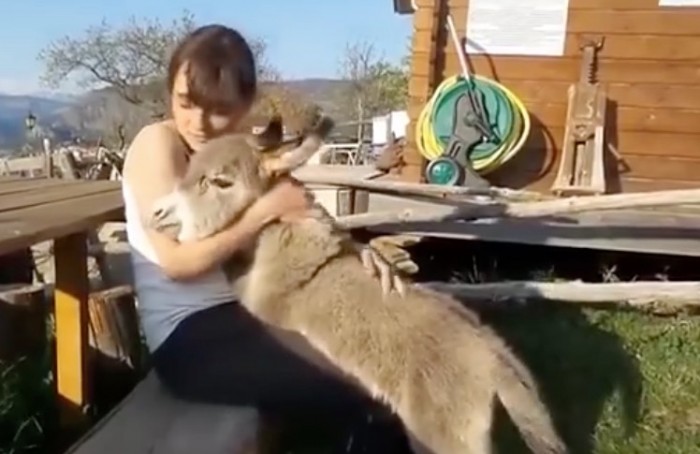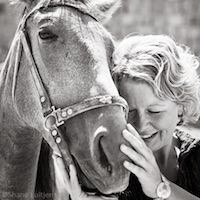Donkeys need our love and awareness too: in some tourist areas they are being exploited and abused.
In the past few years, it’s common to hear about the plight of animals in tourist areas, with the drums of ethical travel awareness beating loud and clear:
“Don’t ride elephants!”
“Don’t swim with the dolphins!”
“Don’t drag a shark out of the water to take a selfie!”
We rarely, however, hear any awareness about donkeys. In many areas where tourists flock, donkeys are exploited and abused. The owners use donkeys to provide rides and photo ops for tourists, then pocket the money, giving little to no care to the donkey—especially if it becomes injured, ill or too old to work. The donkeys work with open wounds from ill-fitting harnesses and are malnourished as the forgotten ones, given only the basics to survive.
When they no longer serve a purpose, i.e., they are no longer able to make money for the owner, the donkeys are either shot dead (often for sport by local youths) or left free to roam. While leaving them free seems like the humane thing to do, most of these areas are in tightly packed tourism centers or rural farming areas—and the donkey, in its confusion of being free for the first time and having to fend for itself, is often subjected to further abuse by tourists and locals or killed by farmers protecting their crops.
The term “Beast of Burden” is an unfortunate one, but also true. The donkeys in many cultures were, and still are, the main work animals—especially in areas with deep ravines. In the area I live in, Central Turkey, most of the orchards, vineyards and gardens are set deep into the valleys.
Donkeys were traditionally the only way to get harvest out of the gardens and, until a few years ago, every local family had at least one donkey. In this area, the donkeys were taken care of and respected—as much as the family car or a good pair of work boots would be. They were rarely given names or cared for as a sentient being though.
Currently, a healthy donkey costs anywhere from $15-70. This will give a farmer at least 15 years of loyal, back-breaking service. Sadly though, if that donkey has an injury or becomes ill—which is often the case as they are given bread or other table scraps that destroy their digestive systems—the local farmer won’t pay for the veterinary care. It’s cheaper to just get a new donkey and let the old one fend for itself.
What you can do to help these beautiful beings.
Education is always the best way to spread information and allow others to know about the profiteering of donkeys and other animals in tourism. If you’re traveling to any of the areas known for their donkey exploitation, such as Greece, Egypt, Mexico, Jordan and India (among others), or if you hear of a friend or relative’s travel plans—a gentle reminder that it’s not ethical to use animals for our entertainment is usually enough. If nothing else, it opens the subject for further discussion.
We can take the opportunity to explain to others why allowing children or adults to jump on donkeys while screaming and flailing their arms around to get the funniest pose for a profile photo causes considerable stress to these animals. Naturally donkeys are docile, solitary and quiet—and shouldn’t be used as a photo prop or to haul a tourist up a steep hill. The money you give to ride this donkey doesn’t trickle down to its care and feeding, only to the owner and his family. These owners could also take you on a rickshaw-style ride or carry you up the hill on their own backs, but we know why they don’t.
On your next holiday, consider stopping off for a day or longer at one of the many donkey sanctuaries. Seeing the work they do is inspiring and often leads to more awareness and education opportunities. Encourage friends and others to be more mindful while traveling overall and to fill up their Instagram pages with donkeys living peaceful and safe lives at a sanctuary or in their natural setting—those types of images are profile pic worthy!
Also consider sponsoring or adopting a donkey. Most of the charities offer affordable donkey sponsorship opportunities. Giving a gift sponsorship is always a wonderful way to spread the awareness and provide food, shelter and care for one more donkey.
Let’s lend our voices to those who cannot speak for themselves. Spread the awareness when you can, donate your time or financial resources whenever possible and send some loving kindness energy out to all of those beautiful donkeys who live long lives without respect.
Here’s just a small list of the thousands of people working around the world to bring a better tomorrow to these beautiful animals. These organizations offer a sanctuary for donkeys, education in rural areas—teaching the farmers how to properly harness, load, feed and care for their donkeys.
Some also offer in-field veterinarian assistance and often a new-for-old swap: offering a new, fit donkey to the farmer in exchange for the ill, injured or elderly donkey—which is then taken to a sanctuary for a peaceful life. The care of these beautiful, gentle souls just requires a small donation for each donkey to be provided a loving, safe and healthy environment. My quest is to share these stories and build a platform to discuss ways we can ensure that all beings are able to live with dignity.
In the United States:
Peaceful Valley Donkey Rescue is by far the biggest rescue organization with currently more than 3,200 donkeys in 30+ locations. Mark and Amy Meyers began the rescue after buying a pet donkey and noticing the neglect of other donkeys in their area.
Worldwide:
The Donkey Sanctuary is an incredible organization that works in more than 20 countries and provides a broad platform of support for donkeys.
Worldwide Veterinary Service is another organization that offers help to donkeys in India.
Here is an additional list of many donkey charities worldwide.
Author: Julie Balsiger
Photo: Video Still
Assistant Editor: Josette Myers; Editor: Travis May







Read 0 comments and reply